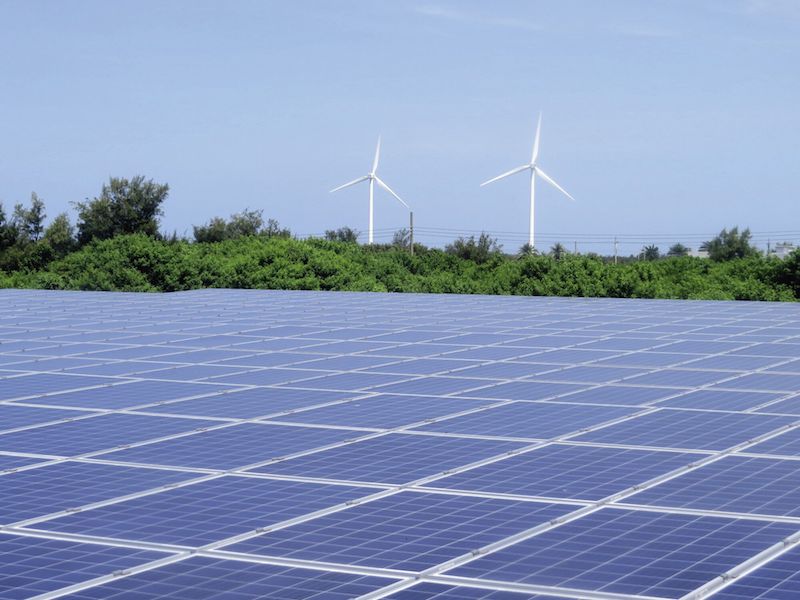Taiwanese solar module supplier United Renewable Energy (URE) and independent power producer Vena Energy have signed a memorandum of understanding regarding the development of 200-300 MW of PV capacity in Taiwan.
Vena Energy CEO Nitin Apte says the company has developed a Taiwan portfolio of 20 projects in operation, development or construction, with a capacity of more than 1.4 GW. URE chairman Sam Hong said: “With the government policy goal of 20 GW [of] cumulative solar power installation by 2025, URE is committed to helping Taiwan achieve this target. With accumulated domestic experience, URE can expand to participate in large projects globally, and [can] create a blue ocean market for our services and products. It is our goal to complete PV system projects of 6 GW [capacity] within the next 10 years.”
Falling module prices have had a profound effect on Taiwan’s manufacturing market. Traditionally strong, the nation’s factories are now in a new wave of fierce competition against Chinese rivals. Most recently, as Europe waved goodbye to its minimum import price for Chinese modules, products from the mainland once more have a better chance on the European market. As a result, Neo Solar Power, Gintech and Solartech Energy merged into URE last year and cell manufacturer Motech Inc. closed production capacity and laid off workers.
Popular content
According to EnergyTrend analysis published late last year, Taiwanese companies are focusing downstream instead. With ambitious domestic goals and severely reduced upfront costs, there is an increased willingness to develop at a higher pace in Taiwan than seen in the second half of last year.
Module suppliers Neo Solar and AU Optronics topped the Taiwanese market in the first half of 2018, reported EnergyTrend, citing the companies’ strong brands. Other domestic manufacturers were “scrambling” to tap the Taiwanese market, which showed vast potential, said the analysts. EnergyTrend added, newly formed module maker URE had 700 MW of capacity in the first half of last year and the country’s top manufacturing companies had cumulative production capacity of 2,150 MW in the same period.
This content is protected by copyright and may not be reused. If you want to cooperate with us and would like to reuse some of our content, please contact: editors@pv-magazine.com.



By submitting this form you agree to pv magazine using your data for the purposes of publishing your comment.
Your personal data will only be disclosed or otherwise transmitted to third parties for the purposes of spam filtering or if this is necessary for technical maintenance of the website. Any other transfer to third parties will not take place unless this is justified on the basis of applicable data protection regulations or if pv magazine is legally obliged to do so.
You may revoke this consent at any time with effect for the future, in which case your personal data will be deleted immediately. Otherwise, your data will be deleted if pv magazine has processed your request or the purpose of data storage is fulfilled.
Further information on data privacy can be found in our Data Protection Policy.